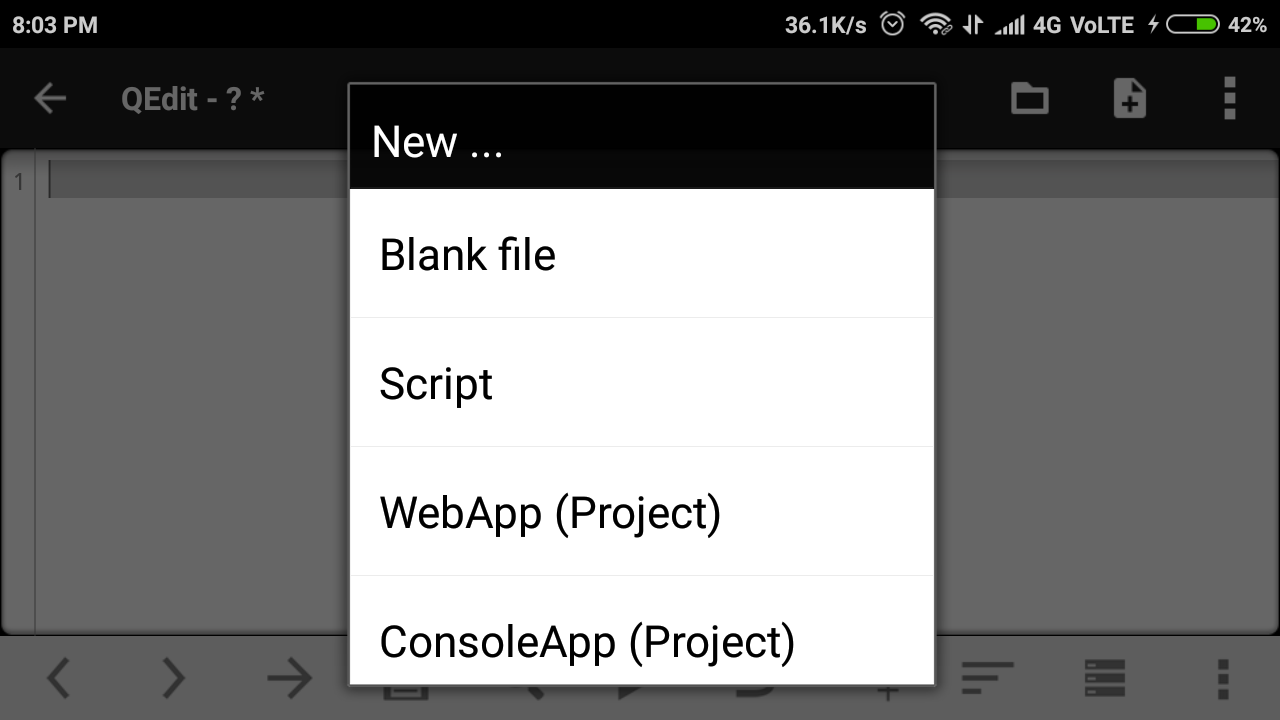
- Python runner for android how to#
- Python runner for android generator#
- Python runner for android android#
- Python runner for android code#
Creating Virtual Environment for Installing KivyĪfter preparing the Kivy dependencies, we can start installing Kivy by creating its virtual environment. The preferred way to run inference on a model is to use signatures -Īvailable for models converted starting Tensorflow 2.5 try (Interpreter interpreter = new Interpreter(file_of_tensorflowlite_model)) ) Interpreter, it must remain unchanged for the whole lifetime of the If you use MappedByteBuffer to initialize an In both cases, you must provide a valid TensorFlow Lite model or the API throws Or with a MappedByteBuffer: public MappedByteBuffer mappedByteBuffer) You can initialize an Interpreter using a. In many cases, this may be the only API you need.

In Java, you'll use the Interpreter class to load a model and drive model
Python runner for android android#
The Java API for running an inference with TensorFlow Lite is primarily designedįor use with Android, so it's available as an Android library dependency: (Optionally resize input tensors if the predefinedįollowing sections describe how these steps can be done in each language.
Python runner for android code#
TensorFlow Lite Android wrapper code generator. TensorFlow Lite model with typed objects such as Bitmap and Rect. Instead, developers can interact with the The wrapper code removes the need to interactĭirectly with ByteBuffer on Android.
Python runner for android generator#
TensorFlow Lite Android wrapper code generator Note: TensorFlow Lite wrapper code generator is in experimental (beta) phase andįor TensorFlow Lite model enhanced with metadata,ĭevelopers can use the TensorFlow Lite Android wrapper code generator to create See below for details about using C++ andĪndroid quickstart for a tutorial and example code. Require writing JNI wrappers to move data between Java and C++ layers. The C++ APIs offer more flexibility and speed, but may The Java APIs provide convenience and can be used directly within yourĪndroid Activity classes. On Android, TensorFlow Lite inference can be performed using either Java or C++ĪPIs. Similarly, consistency with TensorFlow APIs was not anĮxplicit goal and some variance between languages is to be expected.Īcross all libraries, the TensorFlow Lite API enables you to load models, feed Should be no surprise that the APIs try to avoid unnecessary copies at theĮxpense of convenience.

TensorFlow Lite is designed for fast inference on small devices, so it In most cases, the API design reflects a preference for performance over ease of Linux, in multiple programming languages. TensorFlow inference APIs are provided for most common mobile/embedded platforms You to map the probabilities to relevant categories and present it to your Tensors in a meaningful way that's useful in your application.įor example, a model might return only a list of probabilities. When you receive results from the model inference, you must interpret the

Tensors, as described in the following sections. Involves a few steps such as building the interpreter, and allocating This step involves using the TensorFlow Lite API to execute the model. For example, you might need to resize an image orĬhange the image format to be compatible with the model. Raw input data for the model generally does not match the input data formatĮxpected by the model.

tflite model into memory, which contains the model's TensorFlow Lite inference typically follows the following steps:
Python runner for android how to#
This page describes how to access to the TensorFlow Lite interpreter and performĪn inference using C++, Java, and Python, plus links to other resources for each The interpreter uses a static graph ordering and a custom (less-dynamic) memoryĪllocator to ensure minimal load, initialization, and execution latency. The TensorFlow Lite interpreter is designed to be lean and fast. Inference with a TensorFlow Lite model, you must run it through an On-device in order to make predictions based on input data. The term inference refers to the process of executing a TensorFlow Lite model


 0 kommentar(er)
0 kommentar(er)
